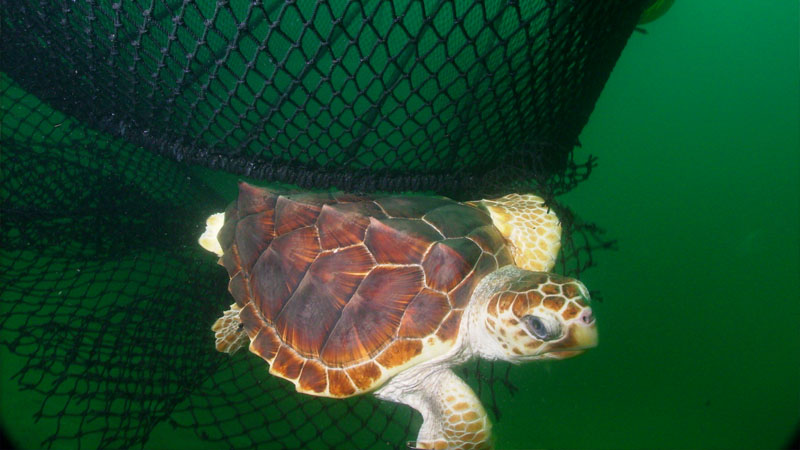Exclusive content

The Florida Fish and Wildlife Conservation Commission (FWC) officers have joined a collaborative operation led by the National Oceanic and Atmospheric Administration’s (NOAA) Office of Law Enforcement for the second consecutive year. This initiative focuses on the protection of endangered sea turtles in the Florida Keys National Marine Sanctuary, an area crucial for marine biodiversity and the sustainable harvesting of shrimp.
The operation saw participation from federal and state partners, including NOAA’s Gear Monitoring Team and the U.S. Coast Guard. Over a span of three days, the teams worked together to conduct thorough inspections of Turtle Excluder Devices (TEDs). TEDs are essential for allowing sea turtles that are accidentally caught in shrimp nets to escape through a specialized trap door, thus preventing them from drowning.
Historical Context and Importance of TEDs
Before the mandatory implementation of TEDs, it was estimated that around 11,000 sea turtles perished each year due to entrapment in shrimp nets. The introduction of TEDs has been a significant measure in reducing these fatalities. Turtle biologists from NOAA Fisheries’ Office of Protected Resources National Sea Turtle Program contributed valuable insights into sea turtle life history and population trends, reinforcing the importance of these devices.
During the operation, 24 officers were deployed across six vessels, patrolling the Florida Keys National Marine Sanctuary and surrounding areas. These patrols and offshore boardings were strategically conducted to inspect TEDs and ensure compliance with fishing regulations. The focus was primarily on vessels operating in federal waters in the southern Gulf of Mexico, but as weather conditions deteriorated, inspections also extended into sanctuary waters.
Engagement with Commercial Shrimpers
The commercial shrimpers targeted in this operation were primarily fishing for pink shrimp and hailed from ports ranging from Texas to Florida. The officers boarded 11 vessels, ensuring that the inspections caused minimal disruption to the fishermen’s schedules. The shrimpers were generally cooperative and open to the officers’ inquiries and inspections.
While most of the inspections resulted in minor violations, which were promptly resolved through compliance assistance—such as trimming overhanging net flaps on TEDs—some cases required more serious intervention. Instances of bent TED bars and improperly set angles, which significantly reduce the chances of a turtle escaping, led to formal investigations.